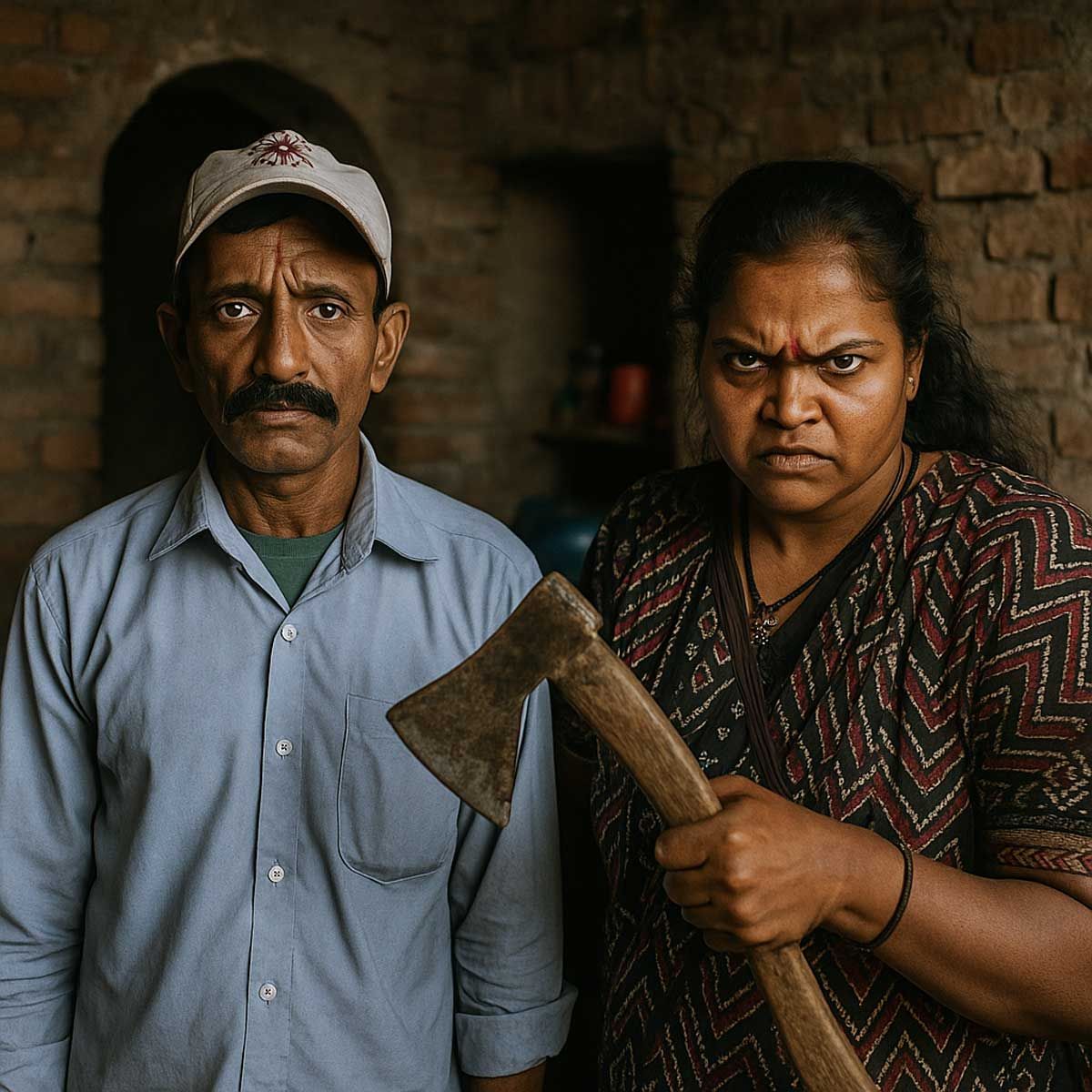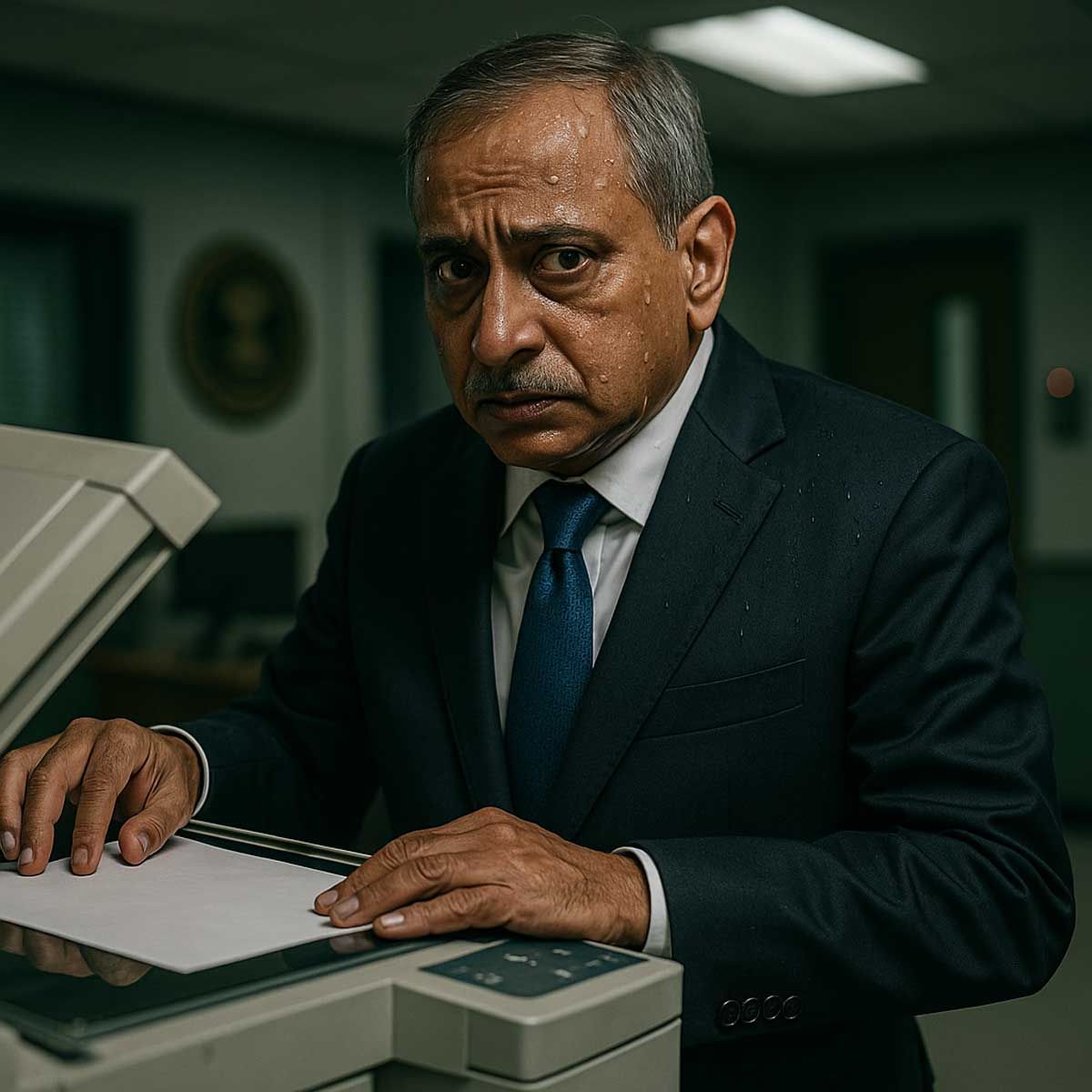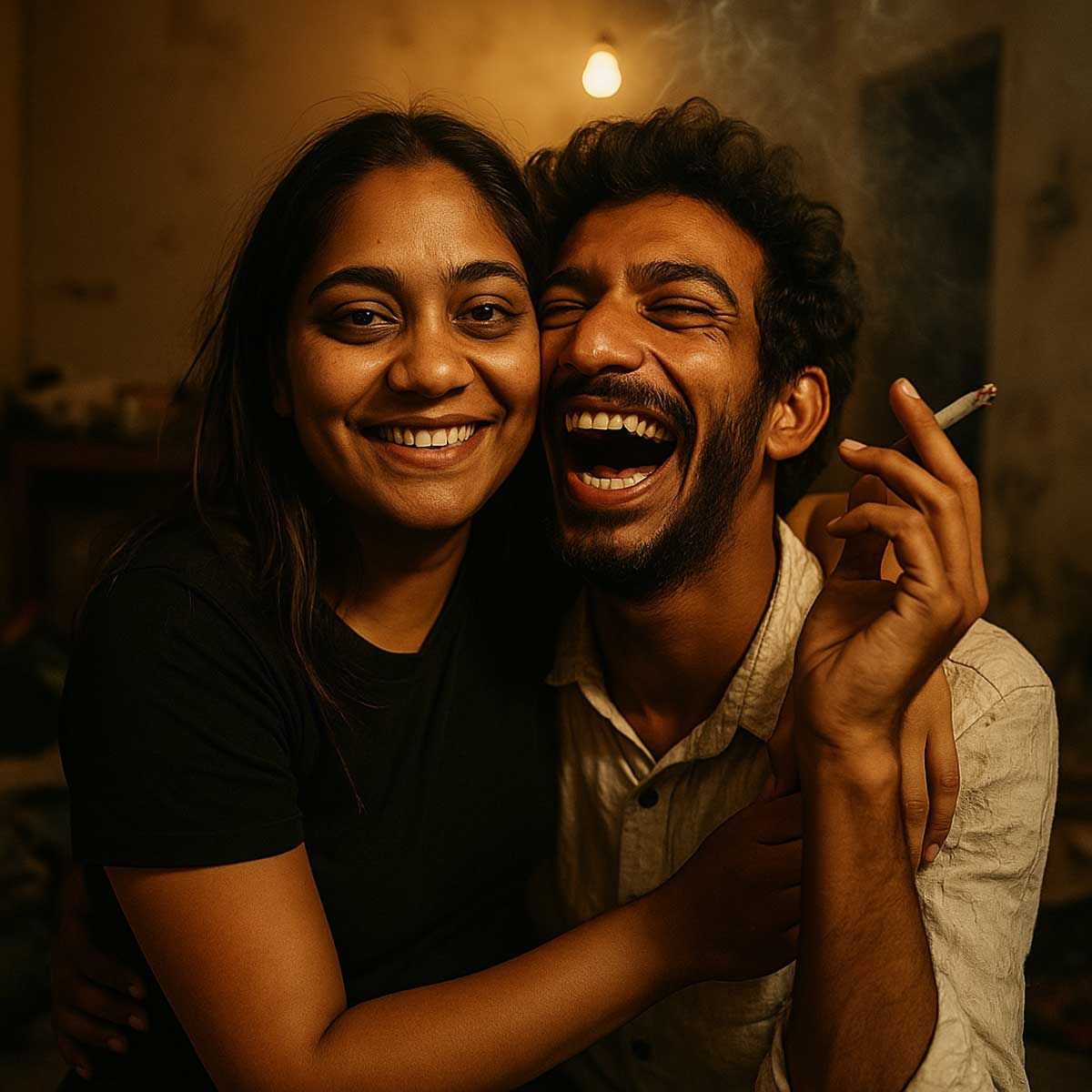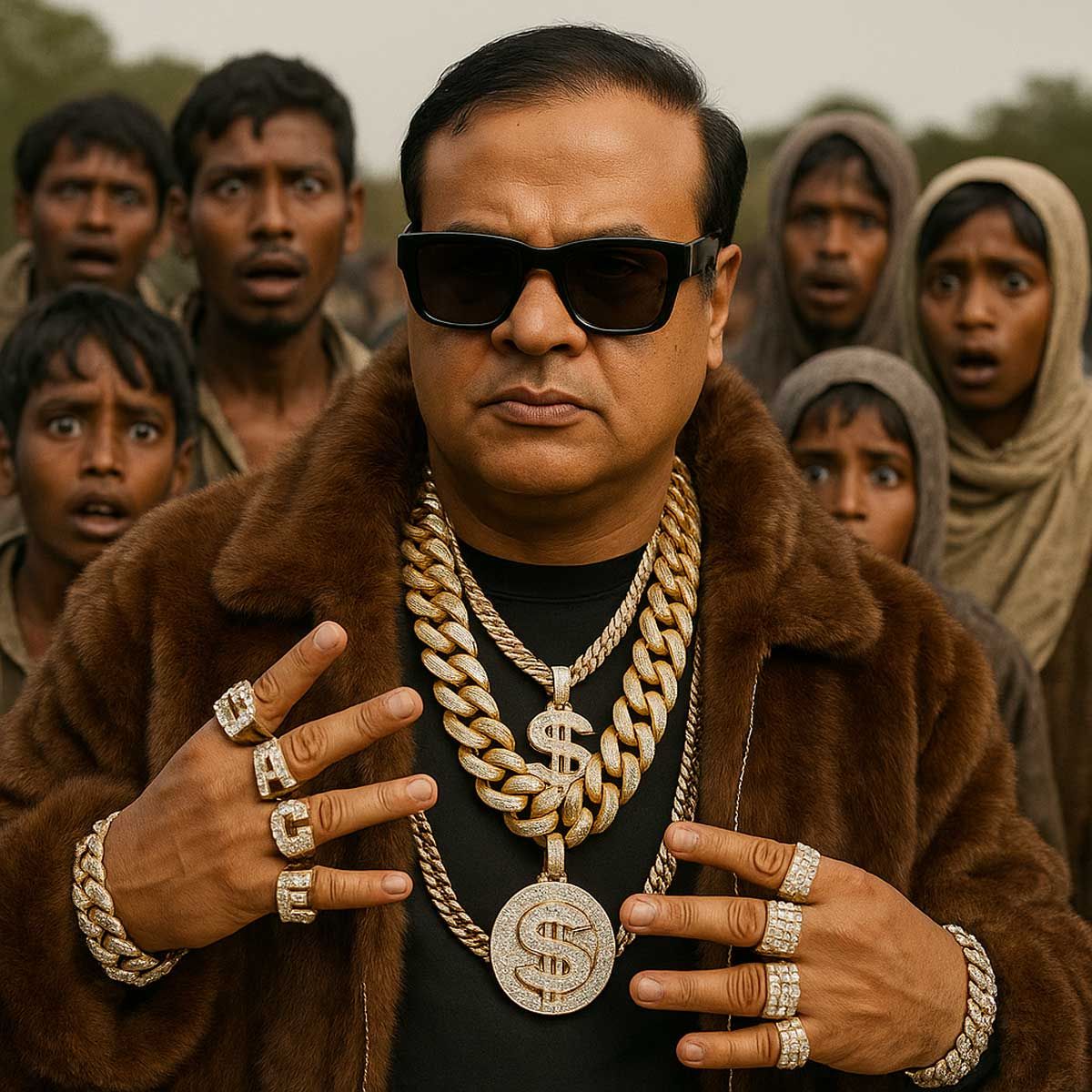More Coverage
Twitter Coverage
Satyaagrah
Written on
Satyaagrah
Written on
Satyaagrah
Written on
Satyaagrah
Written on
Satyaagrah
Written on
JOIN SATYAAGRAH SOCIAL MEDIA
"One essential ingredient for being an original in the day of copies is courageous vision": "Musu Musu Hasi Deu" turned Shaan into a household name, but the song was originally sung by a Nepali boy from Darjeeling Norden Tenzing, a Gurkha Regiment soldier

The Hillians are responsible for bringing about a new revolution in the Nepali music world... but it was the Himalayans Band formed by ex-pat Darjeelingey's serving in the 7 GR BFBS in Hong Kong around the 1970s who produced some of the ever-enduring classics.
"Farki Herey" sung by Norden Tenzing Bhutia of Himalayans Band around 1971/72 is one of the most haunting Nepali music you will ever find. The music they produced is today regarded as "Vintage" Darjeeling tunes... but it originated on the shores of Hong Kong.
Norden Tenzing Bhutia
Norden Tenzing Bhutia was a musician, composer, and singer of classic Nepali pop songs like 'Musu Musu Hasi Deu', 'Gajalu le Aakhai Chopne', and 'Kaha Timro Mayalu Lai'. In the 70s Bhutia was the vocalist and guitarist of the very popular Nepali ensemble, The Himalayans.[1][2] Bhutia is credited with transforming Nepali music and heralding a change in musical taste and content. Bhutia was one of the pioneers to introduce rock, pop, and blues to Nepali mainstream music.
Bhutia was born in Kolkata on 21 January 1950 and raised in Kurseong (Darjeeling). Though he started singing a little late, the seeds of music had got planted in his mind at a very young age of 10-12. It was through that age that he would visit his grandparents, where the music icons like Amber Gurung, Gopal Yonzone, Shanti Thatal, and Ranjit Gazmer were frequent visitors. Though he (and other children) weren’t allowed to enter the room where the legends would play music and sing, he would hear them from another room. It was there where he got deeply inspired into music.
No wonder he always considered them his as his source of inspiration.
His life had him travel places. He travelled to Illam, then to Katihar, then to Jogbani, Jogbani to Dharan, Dharan to Barackpore, Barackpore to Hong Kong, and then from Hong Kong finally to the UK in 1971. Though he always had this passion for music, his actual rendezvous with music started when he was a soldier at the British Army.
He joined the British Army in 1971 and after serving as a British Gurkha soldier in Her Majesty's Armed Forces, settled in Aldershot, UK, and started his own business. Bhutia is survived by his wife and three children.
Bhutia started his musical career after joining the British Army, where he met like-minded Nepalese musicians and formed The Himalayans. He had his first hit with "Gajalule Akhai Chopne", other songs that he was best known for include "Musu Musu Hasi Deu", "Gajalu Le Akhai Chopne", and "Kaha Timro Mayalu Lai".
They started playing together as a band after buying second-hand instruments from Hong Kong. It was Norden who named the band. The name "Himalayans" because no matter where and how they were, their heart always remained deeply rooted in the Himalayas.
The band would perform at every possible occasion in the regiment, mainly doing covers. It was only when the BFBS radio called them to come up with an original song for recording that they recorded the song “Gajalu le Akhai Chopney”, which originally belonged to Norden’s friend Late Arun Thapa. The song became an instant hit and the band started receiving love and recognition widely. The fame motivated Norden to push for more original content.
Since that day, Norden never looked back. He went on bringing songs that would be received with love by all, and he became a sensation. Unfortunately, while everything was going well, he was diagnosed with throat cancer. He fought it hard and well, and never gave up on his love for music.
|
Love for Darjeeling
As much as he loved music, he also loved his hometown, Darjeeling. Once in an interview, he was asked about the best moments in his life. He didn’t think twice to say that it was performing at Gangtok with the native band of Darjeeling, The Darjeeling Carnival.
He was also asked in the same interview about the awards and honour he had received, to which he mentioned few honours that he was given by different organisations, but most of all, he recognised the love from the people of his hometown Darjeeling as always to be the highest honour for him.
As he had lived two lives, one that of a soldier and another one of an artist, he always had two sides of him open for the people. While a lot of them knew him for his British army designation, when he came back to Darjeeling he was simply greeted as Norden Daju, the artist, the singer, what he regarded as one of the best accomplishments of his life. It was this love for his place that resonated in the emotions of his songs.
As a soldier in the British army living miles away from home, his songs were indeed influenced by the emotion of missing the hills, or some long lost love he had left behind in the same hills or maybe the songs that rusty winds would sing to the bushes of the tea back home.
Norden and His Family
Norden Tenzing had a very happy family. He had immense support from his wife, who was an English lady, and his children. He would play them his tunes, ask for feedback. He however had some bitter experiences with some of his friends, who for their own benefit, compromised with his trust and allegedly traded on his compositions. But he didn’t have any hatred in him.
His song “Musu Musu Haasi Dew” was in fact picked up for a Bollywood song that actually went on to become very popular. And all he had to say about it was that he would feel happier if his name was mentioned somewhere as the original composer of the song, but then he was fine with it.
Adieu Dear Norden Daju
As we bid him farewell, we keep with us his name as the vocalist of one of the finest Nepali Bands, the most legendary of all. We keep with ourselves his songs, his words, and the feelings that they brought to us. While some person in a distant land would still hear “Kaha Timro Mayalu lai Chadi Rakhew” while missing home, some other person would try to sing the cover of “Gajalu le aankhai chopney”. These songs are forever here to stay. The songs shall live till the day we have the last Dewsi Band performing.
Bhutia died in Aldershot, Rushmoor Borough, UK on August 4, 2019
The Himalayans (band)
The Himalayans (1974–1981) was a Nepali pop rock band based in Hong Kong. The band is best known for their songs such as Musu Musu Hasi Deu and Gajalu le Akhai Chopney. The band was formed by some Nepali-speaking British Gurkha soldiers in 1974 in Hong Kong and was disbanded in 1981 when some of the band members were transferred to a regiment in the UK.
The band was formed in 1974. Norden Tenzin Bhutia was enlisted in the British Gurkha army in Hong Kong in 1971. There he alongside fellow soldiers form the 7th Duke of Edinburgh's Own Gurkha Rifles formed the band in 1974. They started singing with some second-hand instruments they had bought in Hong Kong for their band. Bhutia named the band The Himalayans because although the band members were from different places, the Himalayas was the common link between them. The band members used to practice during the evening time.
Gajalu le Akhai Chopney
Initially, the band used to perform cover songs at various occasions in the regiment. In 1975/1976, when BFBS radio called them to record a song, they recorded their first original Gajalu le Akhai Chopney, which belonged to Bhutia's friend Arun Thapa. The song propelled them into mainstream Nepali music. After which they composed many original songs.
Musu Musu Hasi Deu
Their song Musu Musu Hasi Deu was recreated by musicians Vishal Dadlani, Shiraz Bhattacharya, and Samrat for the Bollywood film Pyaar Mein Kabhi Kabhi in 1999. According to band member Franklin Mukhiya, the recreation was unofficial and the song was plagiarized.
Main members
- Norden Tenzin Bhutia (Vocalist)
- Bijay Thapa (Guitar)
- Franklin Mukhia (Vocalist)
- Nawin Rai (Guitar)
- Sonam Tshering Sherpa (Drum)
- Deepak Chandra Rai (Drum)
Supporting members
- Azal Singh Gurung
- Shyam Lama
- Krishnamilan Newar
Discography
- Gajalu le Akhai Chopney
- Mayale Maya Gasideu
- Chiso Batasle
- Chanp Gurans Jab Phuldachha
- Malai Dherai Dherai
- Kaha Timro Mayalu Lai
- Pharki Hera Mero Jeewan
- Musu Musu Hasi Deu
References:
 Support Us
Support Us
Satyagraha was born from the heart of our land, with an undying aim to unveil the true essence of Bharat. It seeks to illuminate the hidden tales of our valiant freedom fighters and the rich chronicles that haven't yet sung their complete melody in the mainstream.
While platforms like NDTV and 'The Wire' effortlessly garner funds under the banner of safeguarding democracy, we at Satyagraha walk a different path. Our strength and resonance come from you. In this journey to weave a stronger Bharat, every little contribution amplifies our voice. Let's come together, contribute as you can, and champion the true spirit of our nation.
 |  |  |
| ICICI Bank of Satyaagrah | Razorpay Bank of Satyaagrah | PayPal Bank of Satyaagrah - For International Payments |
If all above doesn't work, then try the LINK below:
Please share the article on other platforms
DISCLAIMER: The author is solely responsible for the views expressed in this article. The author carries the responsibility for citing and/or licensing of images utilized within the text. The website also frequently uses non-commercial images for representational purposes only in line with the article. We are not responsible for the authenticity of such images. If some images have a copyright issue, we request the person/entity to contact us at This email address is being protected from spambots. You need JavaScript enabled to view it. and we will take the necessary actions to resolve the issue.
Related Articles
- Kesarbai Kerkar, Indian voice that made it to NASA Voyager mission - On board the spacecraft was gold-plated copper disc with musical compositions, ranging from Beethoven to Bach to Mozart, carefully selected to reflect global cultural diversity
- "Luck is what happens when preparation meets opportunity": In 1988, around 3 am at night, a Hawaiian reached out to a local studio for an urgent recording of his idea and the song "Somewhere Over The Rainbow" became a worldwide hit with billions of views
- Ad featuring Aamir Khan hurts Hindu sentiments: BJP MP Anantkumar Hegde writes to CEAT Tyres to make ad showcasing nuisance of namaz on roads, loudspeakers in mosques
- Kamal R Khan calls Mika Singh ‘anpadh gawar sooar’ after the singer released a diss track titled ‘KRK Kutta’: Here is how the feud started
- Spanning 4 generations, from 98-year-old Kamala Subramaniam to her great-grandchild, this family's dedication to Rag Darbari Kanada is a testament to the enduring spirit of Indian classical music, Kavya join this legacy illustrating the unbroken tradition
- Indian movies have become propaganda platform to distort real incidents and perpetuate lies
- Netflix suffered a reported loss of 200,000 subscribers during the first quarter triggering a drastic downfall in its stock prices: Tech billionaire Elon Musk's tweet reads, ‘Woke Mind Virus making Netflix unwatchable’
- Bollywood 'Shocked', 'Angry' After Court Rejects Aryan Khan's Bail
- Blacklist term may end this month for New Zealand YouTuber Karl Rock, had insinuated Govt of India’s personal vendetta against him in a recent video
- NCPCR pulls up Maharashtra govt for not filing FIR against Netflix series Bombay Begums makers, children were shown snorting drugs in the show
- Veteran actor Dilip Kumar passes away at 98
- Earlier Bollywood film industry would mock South Indians by portraying them saying 'Aiyo kaisa ji', things are changing now: Actress Priyamani
- Taunted For His ‘Naach’, Ramchandra Manjhi - The last scion of Bhikhari Thakur’s tradition wins Padma Shri
- Hindutvawadi chaku piche se chati pe marega: Rahul Gandhi’s calculated analysis on absolute bullshit
- "A nation united, a discord rejected": India unequivocally cancels Shubhneet Singh's tour, taking a firm stance against anti-nationals & demonstrating unity in rejecting the Khalistani supporter's blatant disrespect for the nation's territorial integrity




























